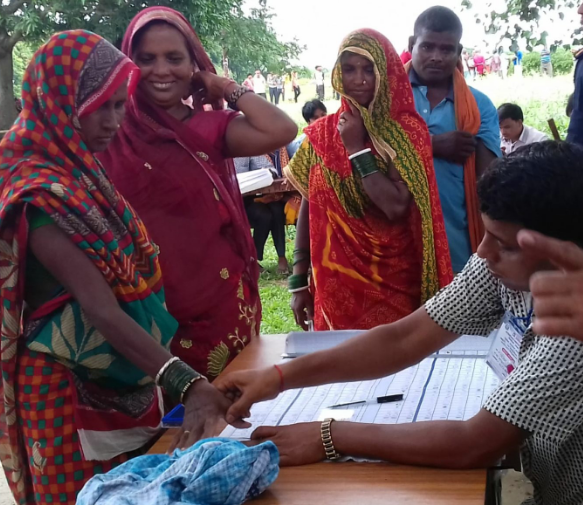Analysis
Factsheet: Electoral Violence And Contestation during Nepal’s Local Level Election- Third phase
2017-09-20

Local Level Election, Silence Period and Election Day: Third Phase
September 16 – 18, 2017
On September 18, 2017, Nepal held its third and final phase of local elections. Citizens enthusiastically voted to elect representatives to the 136 local units of Bara, Dhanusha, Mahottari, Parsa, Rautahat, Saptari, Sarlahi and Siraha districts of Province 2. Voter turnout was 77 percent. Polls happened after a number of districts in Province 2 had witnessed significant flooding in the month of August.
Nepal Monitor recorded 11 election-related incidents during the election silence period and on Election Day (September 16 to 18). This was far lower than the number of incidents recorded during equivalent periods of the first and second phase of elections. 81 incidents were recorded during the first phase, and 93 incidents during the second. The lower number of incidents during the third phase silence period and on Election Day is noteworthy, as Province 2 experienced a high number of incidents during intense protests when the elections were announced. The largely peaceful environment was made possible after the Madhes-based parties agreed to take part in the elections.
This fact sheet provides an overview of election-related incidents that occurred during the campaign silence period and on Election Day, and is based on preliminary data recorded by NepalMonitor.org from 12:00 AM on September 16 until 12:00 PM on September 19. This fact sheet complements previous factsheets released after the first and second phase of Nepal’s Local Elections 2017, as well as regular Analysis Updates on election-related incidents that have been published since March 2017. It also provides a brief overview of incidents during all three phases of local elections.
Background: Nepal’s Local Elections 2017
On February 20, 2017 the Government of Nepal announced that the first local elections in nearly 20 years would be held on May 14, 2017. The announcement was met with both enthusiasm and opposition.
Many across Nepal embraced the local elections as an opportunity to finally have elected representatives in their own communities. However, many also remained unsatisfied with the terms of the new constitution and political situation. Madhesh-based parties immediately held significant protests against the decision, demanding a constitutional amendment before the elections. Due to the protests, the government decided to hold the elections in two phases, with the second phase being rescheduled for June 28. The first phase of elections was held on May 14 across Province 3, 4, and 6.
The Madhes-based parties, especially Rastriya Janata Party Nepal (RJPN), which consists of six Madhes-based parties, continued to oppose the government’s decision after the decision to hold the elections in two phases. The RJPN organized protests, strikes and rallies against the second phase election, which was ultimately postponed in Province 2 to allow time to reach an agreement with the agitating RJPN. A third phase of polls was scheduled in Province 2 for September 18. The second phase was held on June 28 across Province 1, 5, and 7.
On August 21, the government tabled a constitutional amendment bill in parliament, fulfilling a precondition the RJPN had set to participate in the elections. Although the amendment bill failed, the RJPN announced on August 23 that it would participate in the third phase of polls. On September 6, 36,073 candidates filed for nomination for the third phase local election. A total 2,664,950 citizens were registered to vote across Province 2.
The third phase polls were held on September 18, with 76 percent of eligible voters heading to the polls despite recent flooding.
Through its Nepal Peace Monitoring Project, COCAP | NepalMonitor.org gathers data on violent and non-violent contestation in Nepal. Together with the Democracy Resource Center Nepal (DRCN), COCAP has been releasing periodic analysis updates on incidents related to the local elections.

